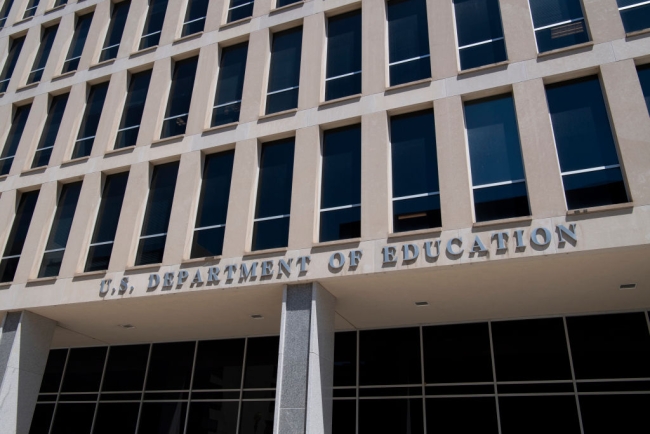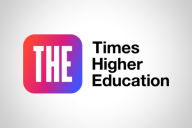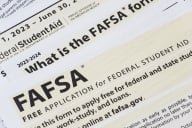You have /5 articles left.
Sign up for a free account or log in.

The Education Department says it will update the regulations for accreditation agencies, state authorization and the definition of distance education. The spring 2024 round of rule making could be the Biden administration’s final chance to make changes to federal higher education policy in its first term.
Caroline Brehman/CQ-Roll Call Inc./Getty Images
The Biden administration is moving forward on its ambitious plans to update the regulations governing accreditation and the definition of distance education, among other topics, the U.S. Education Department announced Tuesday.
The planned negotiations could be the Biden administration’s last chance to leave its mark on federal higher education policy before the 2024 presidential election. Any regulatory updates likely wouldn’t take effect until 2025, but experts and advocates see an opportunity to make the higher education system work better for students and to build in more consumer protections.
“The department is committed to expanding access to opportunity through quality higher education and supporting students to achieve their college dreams,” U.S. secretary of education Miguel Cardona said in a statement. “Our regulatory efforts reflect our laser focus on ensuring that students are well served by the higher education institutions they attend and that our federal student aid programs are helping them to attain postsecondary success.”
The department said the final list of issues subject to negotiation will address some of the “nuts and bolts” of Title IV program integrity and institutional quality under the Higher Education Act. (Title IV is part of the HEA, which authorizes federal financial aid programs.)
Per the news release, the department will update the regulations governing:
- The education secretary’s recognition of accrediting agencies and related issues;
- Institutional eligibility, including state authorization;
- The definition of distance education pertaining to clock-hour programs and reporting for students who enroll primarily online;
- Institutions’ return of Title IV funds to the government; and
- Cash management to address disbursement of student funds.
Tuesday’s announcement didn’t say what specific changes the department is considering, but advocates, experts and analysts have said the department could move to standardize the definition of distance education, tighten the rules for accrediting agencies or require colleges to follow state consumer protection laws even if they are part of a multistate reciprocity agreement.
The department had planned to amend the federal rules governing third-party servicers—entities that colleges and universities contract with to administer or manage financial aid and other programs. However, the issue of third-party servicers was left off the final list, though the department says the issue could be considered for future rule makings. The department is planning to issue updated guidance on those external providers early next year, according to the release.
That guidance, first issued in February, was delayed in April after pushback from college and ed-tech officials, who argued that the department should pursue any changes in this area through rule making.
Tuesday’s announcement marks the next step in the complicated process known as negotiated rule making, which is how the Education Department makes policy in some areas. The department outlined its agenda for this round of rule making earlier this year and held a hearing in April on what other topics or issues should be considered. The negotiations were supposed to take place this fall but were delayed as the department moved forward with another rule-making process to provide more pathways to debt relief. Advocates had worried that the department wouldn’t have the resources or time to undertake another negotiated rule making.
The Education Department also released a request Tuesday for nominations of negotiators to serve on the committee that will consider regulatory proposals. The committee will meet Jan. 8–11 for the first of three sessions scheduled for the spring, according to the news release.
The department is also convening a subcommittee to look at participant eligibility requirements for federal TRIO programs, which help underserved student groups get to and through college but aren’t open to undocumented students. A coalition of TRIO directors, advocacy organizations and higher ed groups has pushed for years—most recently at the April hearing—to change the requirement that students participating in TRIO must be U.S. citizens.
The announcement about the subcommittee is the clearest sign that the department may be ready to listen to those calls.
The TRIO subcommittee will meet virtually on Jan. 12 and Feb. 9. The department is looking for representatives of five constituent groups, including current or former TRIO participants and community-based organizations that work with underserved youth, to serve on the subcommittee.
The main negotiating committee will have representatives from 15 constituent groups, including institutions of higher education, state attorneys general, students and accreditors. Nominations are due by Dec. 13.








